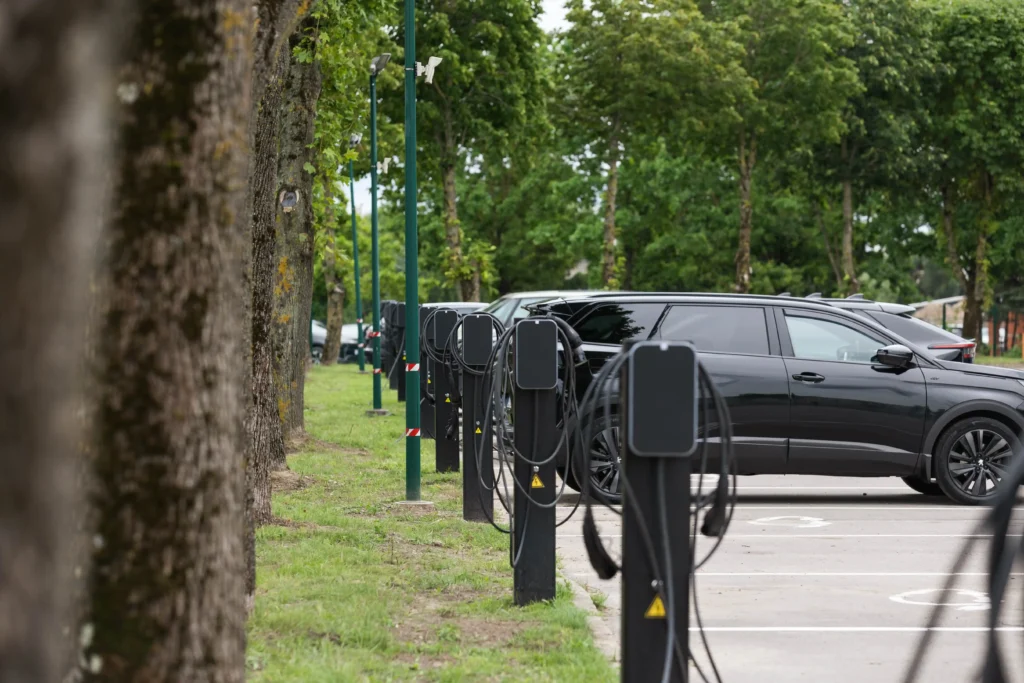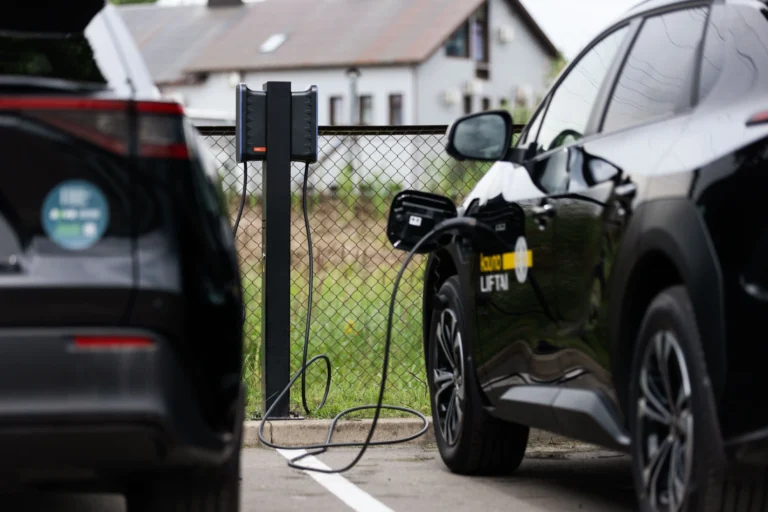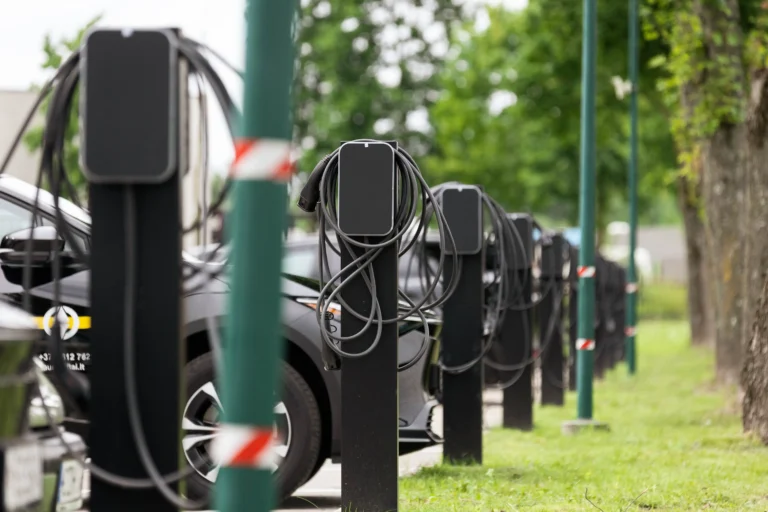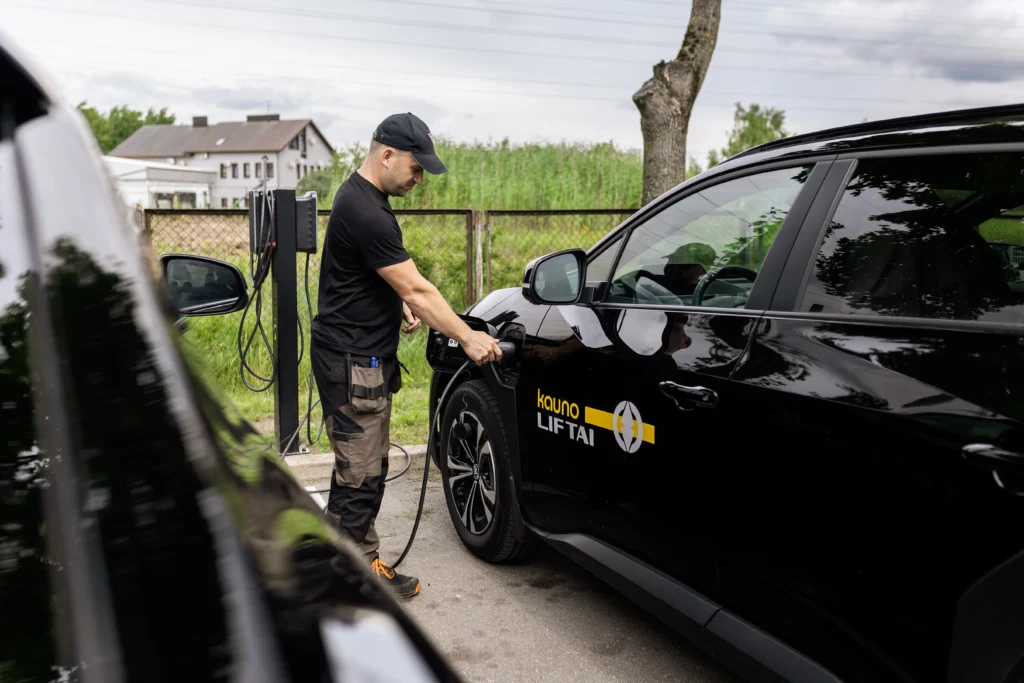Pagrindinis » News » Business support » “Kaunas Elevators electrified its fleet for EUR 0 – the entire charging infrastructure was installed with funding from the grant

Kauno Liftai has become an example of how state support can accelerate a company’s transition to electric transport. Thanks to funding opportunities, 30 charging stations have been installed on the company’s territory and 21 electric cars have been added to the fleet. The charging infrastructure was fully covered by the grant and the cost of the electric vehicles was partially reimbursed.
“Kauno Liftai has been consistently moving in the direction of sustainability for several years. 2020 m. The company has built a 250 kW solar power plant, which generates all the electricity it needs to run its business. 2021 m. The first tests of electric cars are launched and several charging stations are installed.
As the electricity fleet has grown, the need for more infrastructure has emerged. In consultation with Įkrautas, 30 VOOL charging stations have been newly installed on the company’s premises, with dynamic power management – a technology that monitors the electricity consumption of the entire building in real time and automatically distributes the power to ensure that the capacity of the inlet is not exceeded. The stations are connected to the VOOL control platform, which allows you to see who has been charging, when and how much they have charged, and conveniently manage all charging processes.

The installation of the charging stations is funded by the Lithuanian Energy Agency (LEA) under the Economic Recovery and Resilience Plan “Next Generation Lithuania”, funded by the European Union’s NextGenerationEU.
For businesses, this support officially covers up to 50% of the cost of installing a bus stop, based on fixed rates. “In the case of Kauno Elevators, implementing the project together with Įkrautas, it was possible to plan the works so that the compensation covered the entire cost of the installation, thus achieving 100% financing of the infrastructure.
Total value of the 30 stations – EUR 49 857.30. All of this was financed by grant funding.

The purchase of the electric cars was financed by the Environmental Project Management Agency (EPA). This support covered around 40% of the cost of the vehicles. The rest was invested by the company.
Currently, Kauno Liftai’s fleet consists of 21 electric cars, which are used by its employees to serve customers throughout Lithuania.
“With almost free electricity (around 3 cents/kWh), we see that the cost savings are fully covered by the lease payments for electric cars from old cars fuel and repairs. This is not only sustainable, but also an economically logical step,” says Dr. Andrius Andrius, Director for Economics and Innovation at Kauno Liftai Guzavičius.

The company’s analysis shows that the development of electric transport is particularly attractive when the electricity is generated in-house, for example from a solar plant, or when charging takes place within the company’s internal infrastructure. Charging costs are often much higher at public charging stations.
ĮCompanies planning to install private (not publicly accessible) charging stations can apply on the LEA website until 2025. 29 August All the equipment must be installed by 2026. 30 June The total budget for this measure is EUR 21.45 million. Eur.
“The experience of Kauno Elevators shows that by combining LEA funding for charging stations and APVA support for electric vehicles, the company can significantly reduce its investment in electrification – and with proper planning of the charging infrastructure project, charging stations can be installed for free.
We use cookies to ensure that our website runs smoothly and to provide you with the most relevant content. You can choose which cookies you accept.